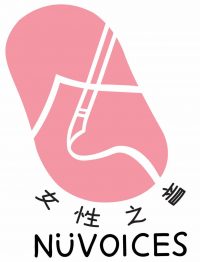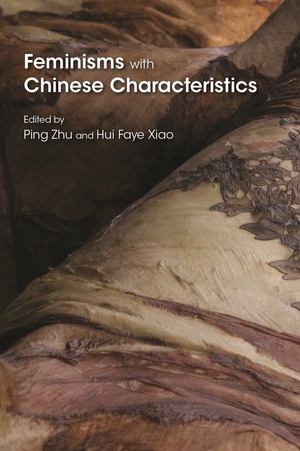In this new book Feminisms with Chinese Characteristics by scholars Ping Zhu and Hui Xiao, the two editors explore what it means to be a feminist in contemporary China, specifically looking at the range of feminist models witnessed in everyday life compared to a singular state feminism.
The year 1995, when the Fourth World Conference on Women was held in Beijing, marks a historical milestone in the development of the Chinese feminist movement. In the decades that followed, three distinct trends emerged: first, there was a rise in feminist NGOs in mainland China and a surfacing of LGBTQ movements; second, social and economic developments nurtured new female agency, creating a vibrant, women-oriented cultural milieu in China; third, in response to ethnocentric Western feminism, some Chinese feminist scholars and activists recuperated the legacies of socialist China’s state feminism and gender policies in a new millennium. These trends have brought Chinese women unprecedented choices, resources, opportunities, pitfalls, challenges, and even crises.
In this timely volume, Zhu and Xiao offer an examination of the ways in which Chinese feminist ideas have developed since the mid-1990s. By juxtaposing the plural “feminisms” with “Chinese characteristics,” they both underline the importance of integrating Chinese culture, history, and tradition in the discussions of Chinese feminisms, and, stress the difference between the plethora of contemporary Chinese feminisms and the singular state feminism.
The twelve chapters in this interdisciplinary collection address the theme of feminisms with Chinese characteristics from different perspectives rendered from lived experiences, historical reflections, theoretical ruminations, and cultural and sociopolitical critiques, painting a panoramic picture of Chinese feminisms in the age of globalization
Below is an excerpt from the chapter: “The Specter of Polygamy in Contemporary Chinese Gender Imaginations: An Interview with Dai Jinhua” (Chinese interview by Wu Haiyun, English translation by Tera Mills and Ping Zhu).
Excerpt:
WU HAIYUN. Not long ago, several Chinese representatives of the Chinese “New Confucianism” (xin rujia 新儒家) expressed views that were extremely disrespectful of women, such as the idea that “only Confucianism can provide a home for modern women,” or that polygamy is “reasonable” in some ways. I am personally both shocked and indignant hearing these views. What are your feelings about them?
DAI JINHUA. I am not shocked when facing these ugly and obsolete, yet familiar arguments because these things have always appeared under different names. I am not indignant either, because indignancy is one of the most powerless emotions.
Actually, I do not like accusation and indignation. Even if I accuse my opponent and denounce the evil patriarchal system, that is not enough to complete my own construction and liberation, and it cannot support me in continuing to open new prospects.
WU HAIYUN. Then please rationally and calmly analyze the background and source of those views for us.
DAI JINHUA. Today New Confucianists have resurrected so-called traditional views against the background of the rise of China and Chinese cultural consciousness. Everyone can more palpably feel that Western logic, or Western culture and universal values, have been gradually misplaced or invalidated in China. This kind of cultural consciousness permeates our daily lives,
and then there appears a succinct response: China has a long and continuous history, and it is that continuous history that formed today’s China.
However, when you respond with this kind of “civilization of continuity” argument(wenming lianxu lun 文明连续论), or when you make traditional culture the prescription to solve the dilemmas of today’s modernization, you may not realize that the so-called tradition has already gone through intense and repeated destructions in the last century. You must know that twentieth-century China experienced all kinds of revolutions in human history, and each revolution was an instance of destruction.
Traditional culture holds rich cultural heritage, but because of the repeated destructions, it is no longer able to reanimate itself. The question of “modernization of tradition” (chuantong de xiandaihua 传统的现代化) was raised as early as during the May Fourth Movement (1919–1924), but it has never been completed in a century. Why? Because tradition cannot be reanimated; it is no longer living knowledge.
WU HAIYUN. Are you suggesting that the New Confucianists’ call to tradition is futile?
DAI JINHUA. Yes, resorting to traditional culture is virtually summoning a specter. So we do not need to be afraid, angry, or worried about this discourse. It is an ineffective narrative that has already been foreclosed.
We refuse to regress into history, but more important, regression is impossible. Modern history has unfolded before us the greatest happiness and sorrow in that it has made any regression a mere daydream.
WU HAIYUN. What you are describing is the ineffectiveness of the kind of narrative in real life, but I feel still indignant that they can so brazenly express such outworn values.
DAI JINHUA. Many people, when they criticize modernity, will emphasize history, tradition, and culture—especially non-Western cultures. However, there are two fundamental realities of premodernity: one is class oppression, and the other is gender oppression. Yet the traditionalists pretend that these two realities did not exist, or perhaps those realities are precisely what they secretly support—like premodern people used to support “superior and inferior both know their place, men and women are intrinsically different” (zunbei you xu, nan nü you bie 尊卑有序,男女有别).
WU HAIYUN. I think today there are many people—not just New Confucianists—who still desire that kind of “order and distinction” (xubie 序别).
DAI JINHUA. I agree. This is related to another important reason why I am not angry. I have seen clearly that these things have their more variegated and penetrative social reality or cultural reality in our world. Today China’s reality is a condensed version of several hundred years of European history: the memories of the premodern era and its historical structure survive in various ways. Even without the call of New Confucianism, the specter of polygamy still exists deep in contemporary Chinese familial and gender imaginations.
Taiwanese scholar Hsiao-Hung Chang once told me that Taiwan’s most popular tabloid stories and TV shows are the ones about concubines and mistresses. Is it not the same on the mainland? Is not Empresses in the Palace (Zhenhuan zhuan 甄嬛传) a classic example? This
kind of TV show narrates power struggles in the imperial harem, and yet attracts the identification and fascination of audience of various social classes, and most of these audience are women. This fully illustrates that the polygamous structure still exists in the mass psychology.
More important, capital has already summoned and resurrected the specter of polygamy in today’s China. How many women a man owns is proportional to the power and capital he owns. I want to use an a movie as an example: Lou Ye’s 娄烨 Mystery (Fucheng mishi 浮城谜事). The male protagonist of the movie—a lower-middle-class man—has a nuclear family sanctioned by a legal marriage. He also has a “concubine” (erfang 二房) approved by the Chinese blood-relative family and authority, represented by his mother. At the same time this man would also occasionally call a prostitute, a female college student from a poor family. I was shocked when I watched this movie. I felt that Lou Ye had captured the true state of Chinese society: the premodern logic can summon the authority of the patriarchal specter.
WU HAIYUN. What you are saying is, some narratives that summon the specter of patriarchy are actually not frightening; what is truly frightening is capital.
DAI JINHUA. Yes. Compared to the reincarnation of polygamy in the cultural imagination, the resurrection of polygamy through capital and power is much more corrupting and frightening. In reality the structure of capitalism is patriarchal: it is monopolizing, tyrannical, greedy, pragmatic, and authoritative. As a massive patriarchal endeavor, the process of establishing monopolistic capital globally is a process of continuous exclusion; all disadvantaged groups, including women, are doomed to a position of perpetual exile.
WU HAIYUN. However, as soon as the idea of capital is introduced, the issue of gender becomes more complex. You just said that the number of women a man owns is proportional to the amount of capital he has, but the reverse is also true. In our society, if a woman has a lot of capital or power, she can also own a lot of men.
DAI JINHUA. Certainly, therefore when we see the patriarchal attribute inherent in capitalism, we should also see that capital surpasses a pure patriarchal system. We can see that there are women who use capital to elevate themselves. Around the world there are more and more female presidents, politicians, and CEOs. Actually, modern Chinese writer Zhang Henshui 张恨水 long ago already insightfully wrote in his novel The World of Demons and Ghosts (Wangliang shijie 魍魉世界) that the women who hold economic power or have a job are intimidating. This indicates that the internal logic of capital does not care about the distinction between male and female.
About the authors
Ping Zhu teaches Chinese Literature at the University of Oklahoma and serves as editor of Chinese Literature Today and contributing editor at World Literature Today. Hui Xiao teaches Chinese at the University of Kansas and she’s the author of Family Revolution.
Buy the book here

